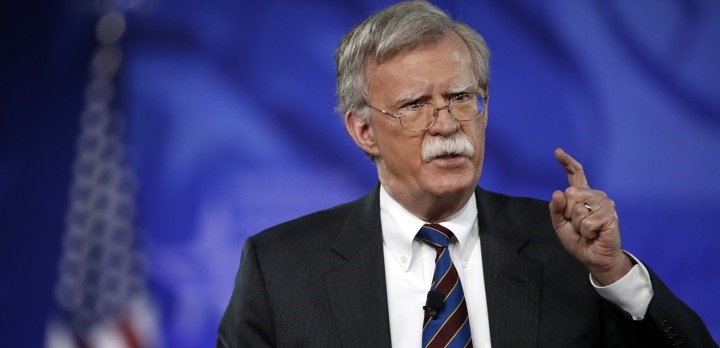John Bolton issues stern warning to Tehran
September 27, 2018 | Expert Insights

US National Security Adviser John Bolton has warned Iran's rulers that there will be "hell to pay" if they harm the US, its citizens or allies.
Background
Iran’s current nuclear program involves several research sites, two uranium mines, a research reactor, and uranium processing facilities. The country ratified the Non-Proliferation Treaty in 1970. Thus, its nuclear program has to be subject to International Atomic Energy Agency (IAEA) verification.
In the 2000s, reports began emerging on Iran running a uranium enrichment program in secret. An investigation by the IAEA revealed that Iran had not declared a number of its nuclear activities to the group. Thus, the nation was subjected to multiple harsh sanctions from the international community. This has cost the nation billions of dollars (estimated $100 billion in oil revenues alone till 2015). It has also lost out on foreign direct investment.
On 2 April 2015, the P5+1 and Iran reached a provisional agreement that sought to lift most of the sanctions in exchange for limits on Iran's nuclear programs extending for at least ten years. When the International Atomic Energy Agency (IAEA) certified that Iran had restricted its sensitive nuclear activities, the UN sanctions were lifted on January 16, 2016.
The United States and Iran do not have any formal diplomatic relations or ties. The two nations share an acrimonious relationship. In 2002, US President, George W Bush, referred to Iran as being part of the “axis of evil.”
Read more about our extensive analysis of the US-Iran dispute here, here .
Analysis
John Bolton’s recent comments came hours after President Donald Trump accused Iran of sowing "chaos, death and destruction" across the Middle East. Iranian President Hassan Rouhani responded by criticising the Trump administration for its hostility. The US recently imposed sanctions after leaving the 2015 Iran nuclear deal. The accord, negotiated by former President Barack Obama, saw Iran limit its nuclear activities in exchange for sanctions relief.
The remaining signatories are standing by the deal. The UK, China, France, Germany and Russia say they will set up a new payment system to maintain business with Iran and bypass US sanctions. US Secretary of State Mike Pompeo condemned the plan as "one of the most counterproductive measures imaginable".
Mr Bolton said the "murderous regime" of "mullahs in Tehran" would face significant consequences if they continued to "lie, cheat and deceive". The former US envoy to the UN was speaking at an anti-Iran conference in New York on Tuesday. "If you cross us, our allies, or our partners; if you harm our citizens," he said, "there will indeed be hell to pay." "Let my message today be clear: We are watching, and we will come after you." Mr. Bolton, who has argued for military action against Iran in the past, said the US would be aggressive in enforcing economic sanctions.
Meanwhile, President Trump defended his decision to abandon the nuclear deal while speaking at the UN General Assembly in New York. "Iran's leaders sow chaos, death and destruction," he said. "They do not respect their neighbours or borders or the sovereign rights of nations. Instead, Iran's leaders plunder the nation's resources to enrich themselves and spread mayhem across the Middle East and far beyond." He believes that renewed economic pressure will force Iran to agree to a new deal.
On Wednesday, Mr Trump is due to lead a UN Security Council meeting on Iran and the non-proliferation of nuclear weapons. The remaining members in the nuclear deal say they will set up a new payment system to allow oil companies and businesses to continue trading without relying on the US-led global market and dollar. Exactly how the system would work is still being determined.
Counterpoint
Mr Rouhani said dialogue should begin by ending threats and what he called "unjust sanctions", adding that no nation could be brought to the negotiating table by force.
"The United States' understanding of international relations is authoritarian. In its estimation might makes right. Its understanding of power, not of legal and legitimate authority, is reflected in bullying and imposition," he said in New York.
Iran has accused President Trump of waging "psychological warfare" against it and denies any involvement in terrorism. It insists its nuclear programme is entirely peaceful.
Assessment
Our assessment is that while re-imposed US sanctions will impact the Iranian economy, it is possible that the JCPOA will survive without Washington as long as all other signatories remain committed. As stated previously, we feel that Trump’s stance may be intended to signal to Pyongyang that the US is firm on denuclearisation. We believe that long-term sanctions could not only risk an escalation of conflict in the Middle East, they would also allow players such as Russia and China to step up their economic influence in the region.








Comments